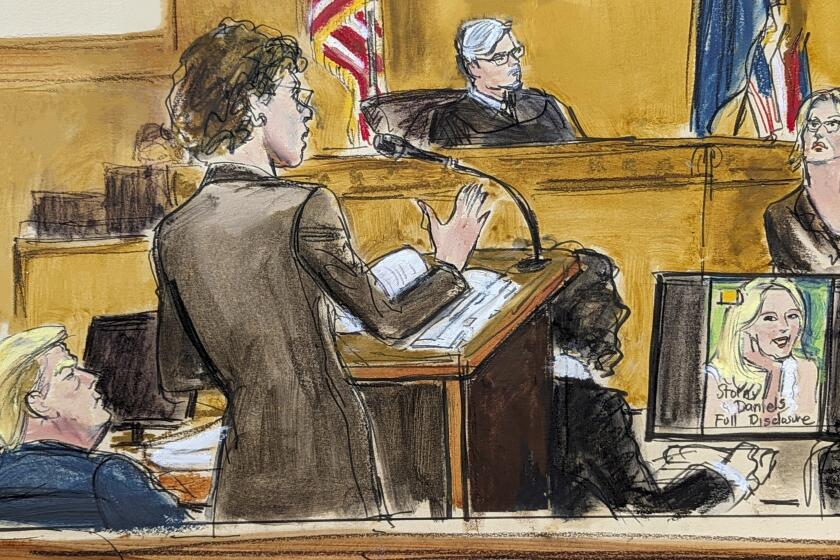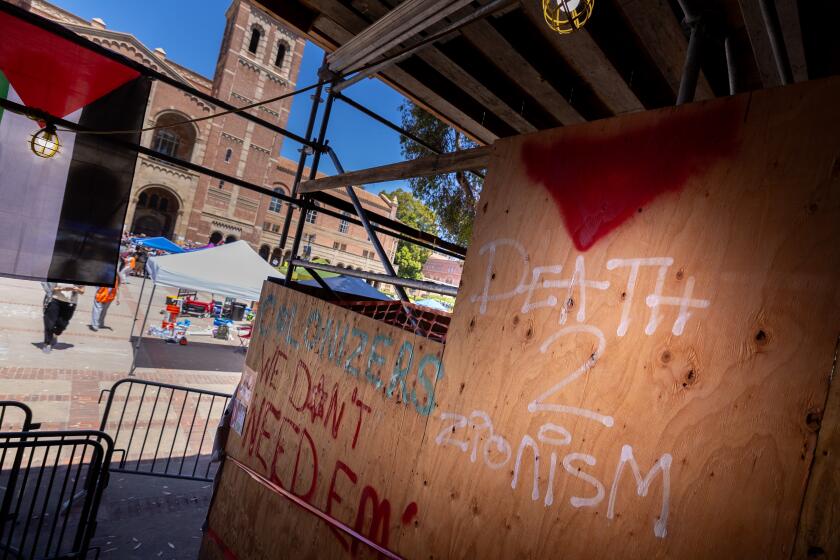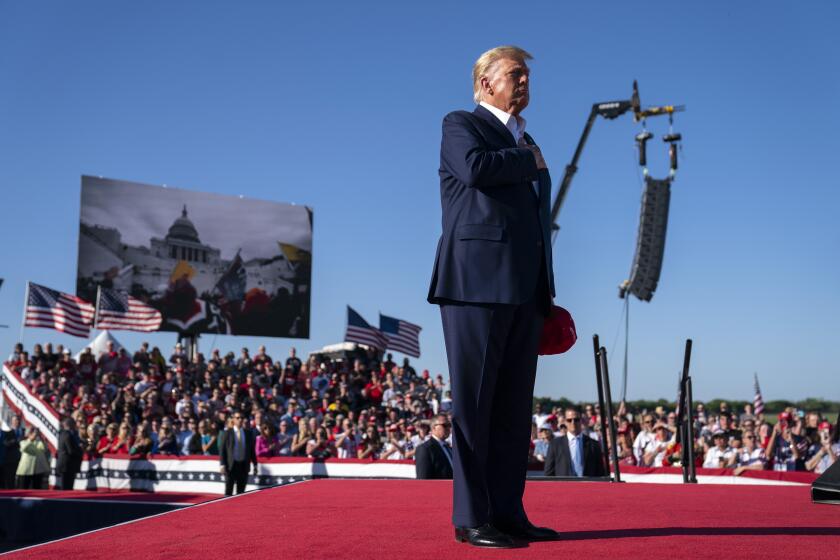‘Winner Take All’ Is Not a Just Answer : South Africa: Protection of minorities does not mean protection of privilege. It does mean protection against the abuse of power by the majority.
Regardless of what other people say, I believe that sanctions per se are not the main problem in South Africa. Our prime concern is the domestic situation--that is, the process of negotiation with all South Africans for a better future and the need for improvement of the quality of life for all.
Insofar as sanctions against South Africa exist, we are living with them. What they have done, however, is retard our ability to fulfill our commitment to redress social and other backlogs in an imaginative way and on a sufficiently large scale. Should the international community re-evaluate its position on sanctions, it would allow us to harness our country’s resources and face our challenges effectively, both inside South Africa and in the whole subcontinent--challenges that can best be met by a vibrant South African economy.
We disagree with the African National Congress’ anachronistic emphasis on nationalization of industry, which it sees as the guarantee of a redistribution of wealth. We believe that a free-enterprise economy is the key to economic progress in the future. It is a proven system capable of generating new wealth and new opportunities, as is evidenced in the progress of the industrialized nations that adhere to it.
In South Africa, unfortunately, this system is seen by many as synonymous with apartheid. In their rejection of apartheid, many would then equally, and mistakenly, equate a centrally controlled economy with economic progress. These are links that must be broken.
My greatest hope is to bring about a just and fair South Africa by peaceful means. The greatest trap would be that radicalism and escalating conflict get out of hand. While firmly and fairly maintaining law and order, we must therefore strive for consensus, lifting our gaze above the many stumbling blocks presented by self-interest, exaggerated expectations and fear.
In this endeavor, I believe I can work with Nelson Mandela. I believe I can work with him and other leaders in negotiating a new constitution for our country on the basis of give and take. I have seen Mandela keep his word after discussions with me. I perceive him to be a man who prefers peace to violence. He is a friendly and dignified man.
There is no doubt in my mind that the overwhelming majority of South Africans are in favor of the kind of peaceful change I would like to bring about with the help of Mandela and other leaders with a proven support base. The mere fact that I could sit down with an ANC delegation earlier this year, I think, testifies to the will of the South Africans to give peace a chance.
I believe that, on the black side of politics, there is a growing acceptance--even among those who used violence as a method of policy--of the government’s integrity in negotiating a common future. The time of violent confrontation is past. All of us share some common ground in realizing that peace is the only option.
Once the negotiation process has gained momentum--and the government is eager for this process to start as soon as possible--the search for consensus will replace polarization.
We now want to work out a just and equitable system for all, but at the same time make sure that those who have enjoyed full freedoms do not forfeit them. That is why the National Party repeatedly emphasizes, in addition to universal franchise, the principle of nondomination and the protection of the rights and interests of minorities.
Franchise on a common voters’ roll in an otherwise undifferentiated and unqualified system of political representation must lead inevitably to majority domination of minorities. History has ample examples of the tension, frustration and conflict that unavoidably go together with the domination of closely knit minority groups.
A constitutional system based on the “winner-take-all” approach is therefore not the answer to South Africa’s complexities. It does not provide for adequate protection of minorities, nor for the cultural, religious and language differences among South Africans. However, universal adult franchise within a system into which constitutional mechanisms of protection are built is indeed an achievable possibility.
One would be mistaken to draw from this a plea against the majority of the country’s population getting their due. The whole argument now centers around unqualified majority rule without the balance of protection for minorities. Protection of minorities, I hasten to add, does not mean protection of privilege nor continuation of domination by a minority. It does, however, mean protection against the abuse of power by the majority.
To repeat, I am in favor of universal adult franchise within a constitutional dispensation based on the principle of nondomination and into which most of these mechanisms are built: the decentralization of power, the devolution of authority to lower levels, constitutional checks and balances, decision-making by consensus and an independent judiciary. In addition, I stand for a bill of rights. Taken together, these elements will pave the path to a fair and just South Africa.
More to Read
Start your day right
Sign up for Essential California for news, features and recommendations from the L.A. Times and beyond in your inbox six days a week.
You may occasionally receive promotional content from the Los Angeles Times.






